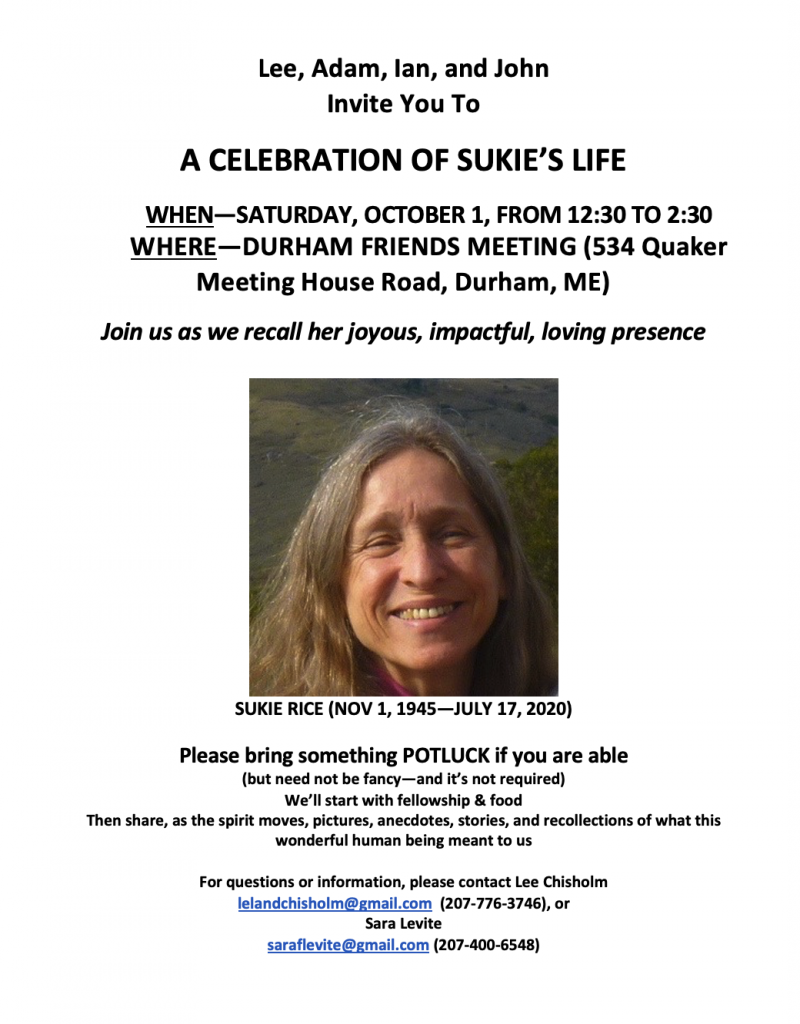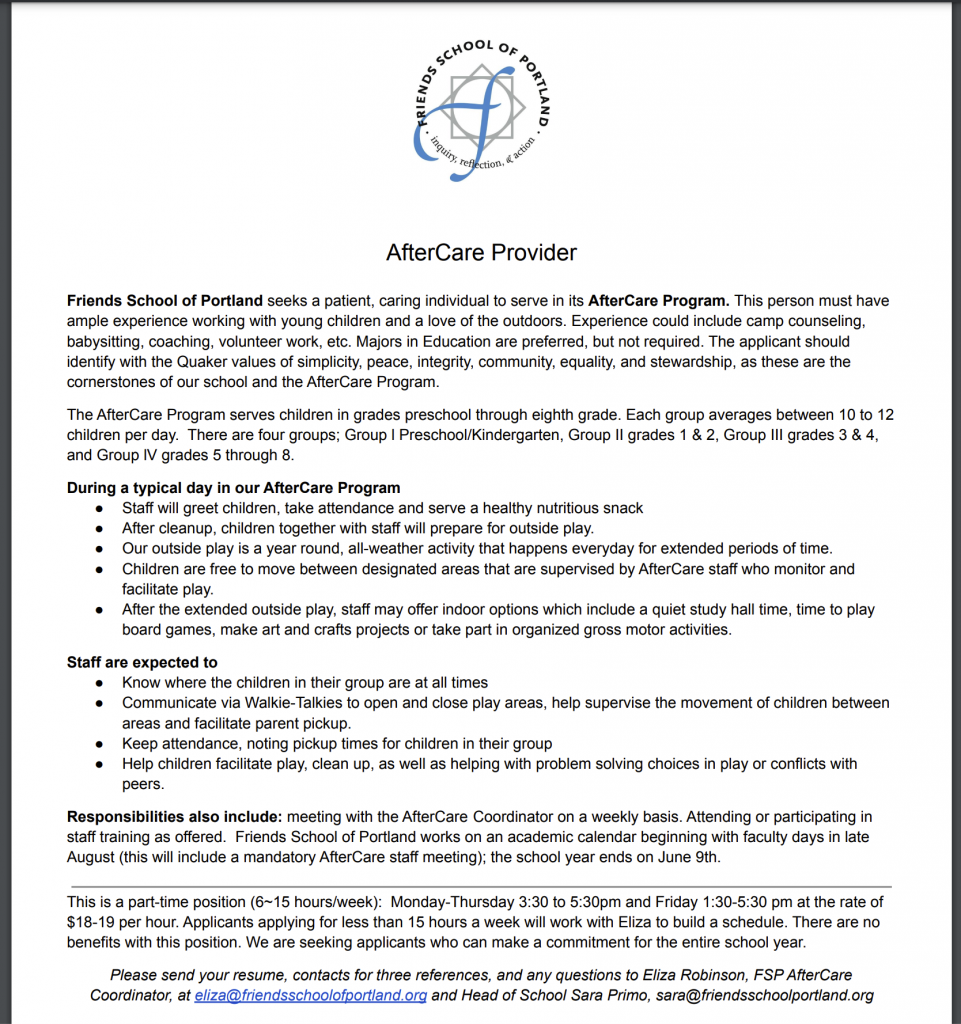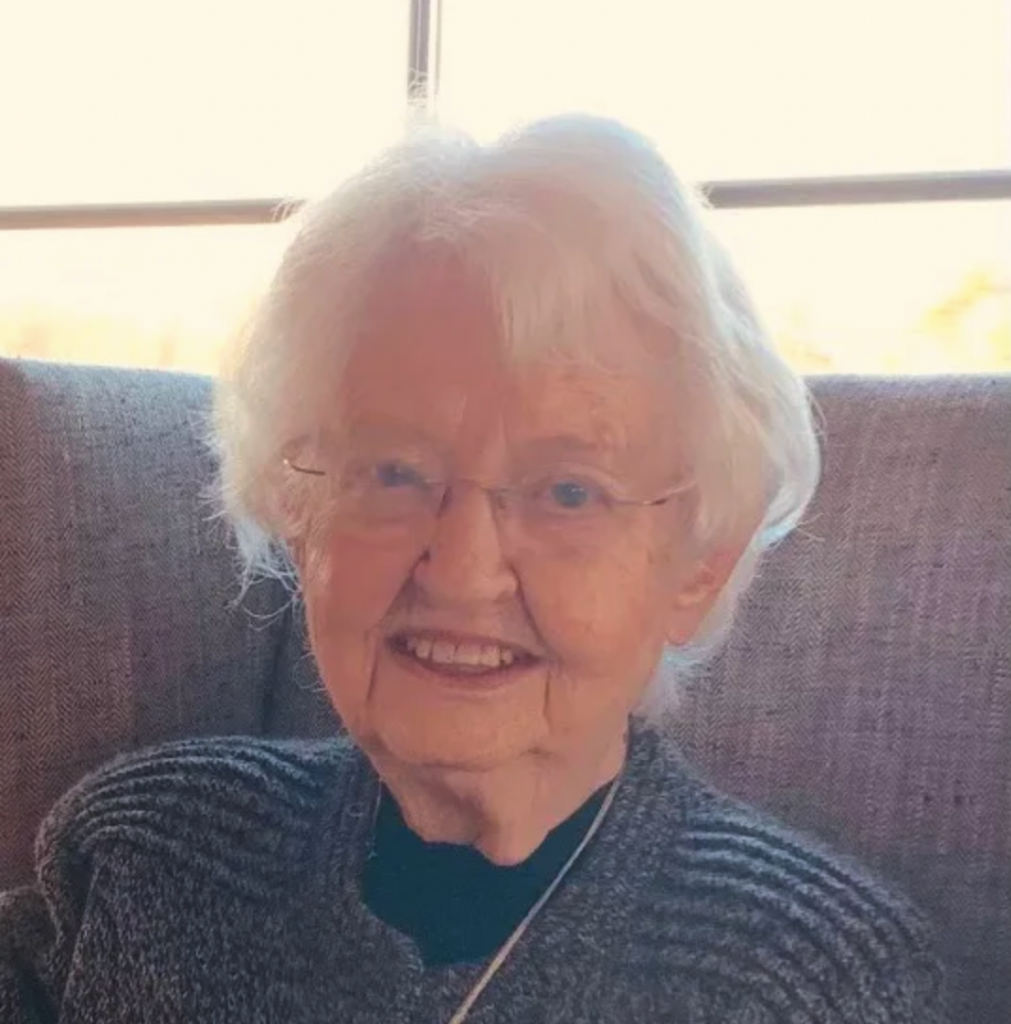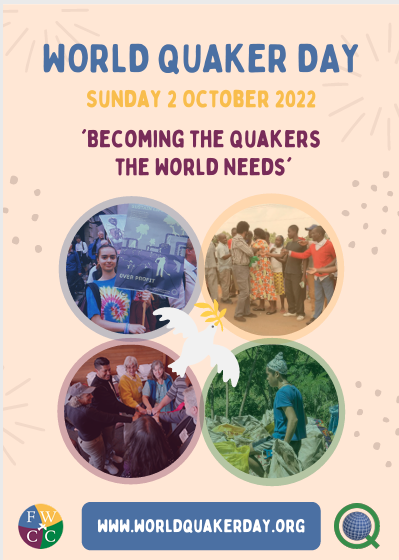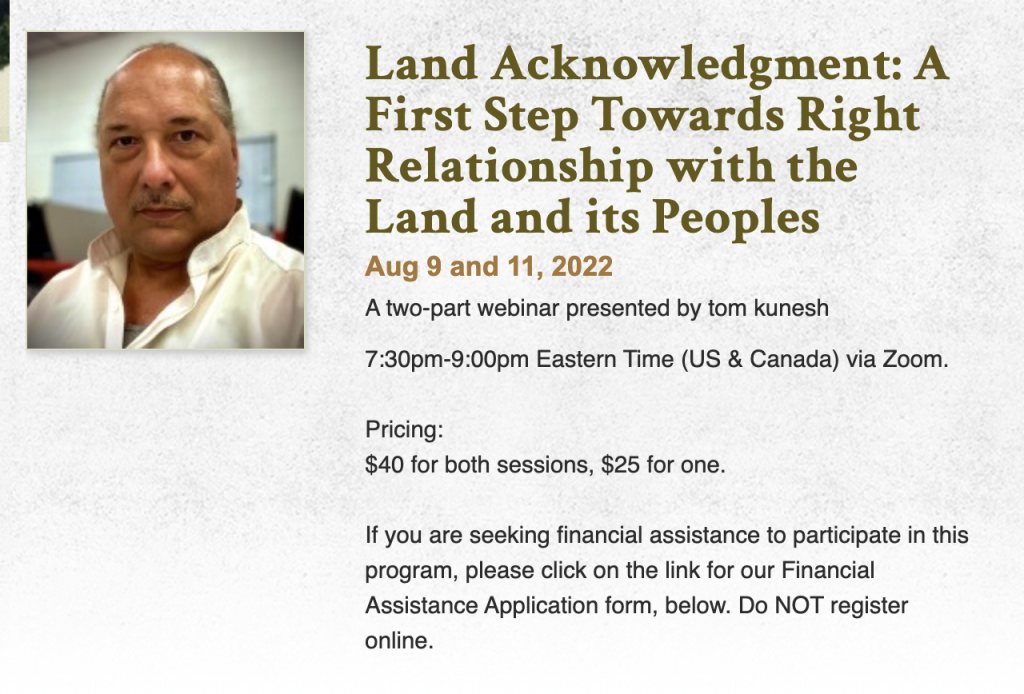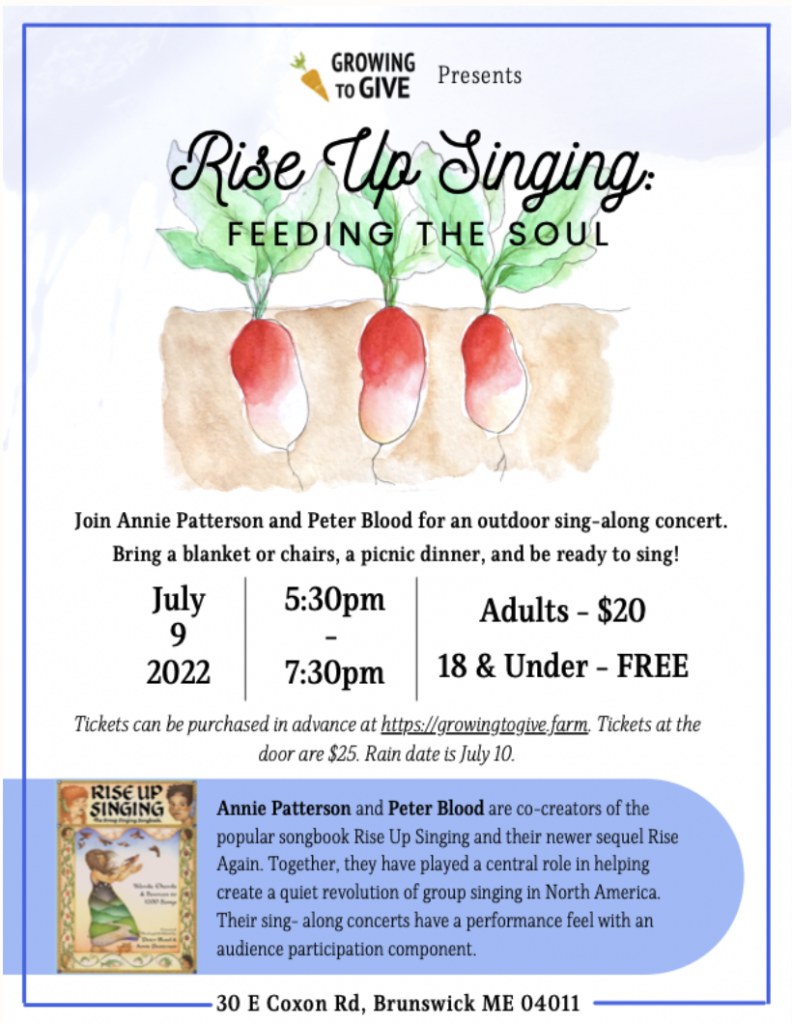Message given at Durham Friends Meeting, August 14, 2022
Words of Joanna Macy, on gratitude:
We have received an inestimable gift. To be alive in this beautiful, self-organizing universe — to participate in the dance of life with senses to perceive it, lungs that breathe it, organs that draw nourishment from it — is a wonder beyond words. It is an extraordinary privilege to be accorded a human life, with self-reflexive consciousness that brings awareness of our own actions and the ability to make choices. It lets us choose to take part in the healing of our world.
Gratitude for the gift of life is the primary wellspring of all religions, the hallmark of the mystic, the source of all true art. Yet we so easily take this gift for granted. That is why so many spiritual traditions begin with thanksgiving, to remind us that for all our woes and worries, our existence itself is an unearned benefaction, which we could never of ourselves create.
The great open secret of gratitude is that it is not dependent on external circumstance. It’s like a setting or channel that we can switch to at any moment, no matter what’s going on around us. It helps us connect to our basic right to be here, like the breath does. It’s a stance of the soul… Gratitude is the kernel that can flower into everything we need to know.
Take a few deep breaths and call to mind something for which you are grateful. If you’re comfortable, hold your hands in front of you like this, and imagine that you are holding this thing for which you are grateful. Quite possibly it’s not a tangible thing that you can hold in your hand, but imagine that you are. Hold it, and silently offer your unspoken words of thanks.
Today I’d like to talk with you about spiritual leadership for a climate-changed world.
First I want to let you in on a little secret: When I say “Spiritual leadership,” I’m talking about you. You are a spiritual leader. By virtue of the fact that you are part of this Friends Meeting, striving to embody Quaker values — a commitment to simplicity, a belief in the centrality of silence, openness to truth as it is continually revealed, a genuine desire to seek peace with oneself and others, practices rooted in community, equality, and stewardship (these are some of the things I appreciate about the Quaker tradition!) — by virtue of this, I want to you to hear me say that you are a spiritual leader. Maybe you’ve never thought of yourself that way, but today I boldly proclaim that you are one, or at least you have the potential to be one, and the world needs you to live into the fullness of that identity.
Spiritual leadership for a climate-changed world — do you see what we did there? Climate-changed? Maybe you noticed that we added a little “d” tacked on the end. What happens when we do that? Suddenly that familiar phrase, “climate change,” becomes past tense. No longer can we think of climate change as something off in the future. It’s here and now — and it’s a primary characteristic of the world in which we are living and in which spiritual leaders are called to lead.
So what does spiritual leadership demand of us, in a world where temperatures are rising? Yesterday’s headline read, “The Arctic is heating up nearly four times faster than the whole planet, study finds.” Probably you know that the Gulf of Maine is warming faster than 96% of the oceans on the planet. In a world where sea levels are rising, causing more frequent flooding that threatens coastal communities, even forcing residents of some low-lying islands to relocate… In a world of more intense hurricanes, unpredictable winter storms, disastrous drought in some places and equally disastrous rainstorms in other places… In a world where devasting wildfires destroy habitats and ravage forests that sequester carbon… In a world where 1 in 7 bird species is at risk of extinction and more than 40% of insect species are in decline, 1/3 of them endangered — and of course, the loss of birds and insects threatens agriculture in significant ways, which has a devastating ripple effect across the food chain… What does spiritual leadership require of us in a climate-changed world?
I don’t know about you, but I find it’s essential, maybe even a little bit liberating, to name the truth — to put it all out there and acknowledge it for what it is. The truth is heavy, but what’s worse than confronting all of this is denying it. Turns out there’s nothing at all hopeful about burying our heads in the sand. Environmental scientist Katharine Hayhoe says she is often asked, “What can I do?” Her response: the most important thing we can do to address the climate crisis is to talk about it.
When I talk about it, I often quote another environmental advocate, Gus Speth:
“I used to think the top environmental problems were biodiversity loss, ecosystem collapse, and climate change. I thought that with thirty years of good science we could address these problems. But I was wrong. The top environmental problems are selfishness, greed, and apathy, and to deal with these we need a cultural and spiritual transformation. And we scientists don’t know how to do that.”
When I hear these words, I get energized. Cultural and spiritual transformation may not be within the purview of scientific community, but it should be within the purview of the faith community! It should be within the purview of the Quaker community! We at The BTS Center are focusing on spiritual leadership for a climate-changed world, because we want to see cultural and spiritual transformation!
The climate crisis is more than just a parts-per-million problem. It’s more than just a fossil fuels problem. It’s more than just a plastics problem, more than just a global warming or greenhouse gas or sea level rise or species extinction problem — these are all symptoms. The underlying crisis is a spiritual crisis — rooted in selfishness, greed, and apathy, expressed in a pernicious cycle of domination, extraction, and consumption. In our extractive capitalist culture, we have been fed the lie that the sole purpose in life is to consume more. To see meaningful change, we need a new vision for what it means to live a good life — a life that is rooted in justice, in equity, in the common good, and not only for ourselves, but also for all living things.
At its roots, the climate crisis is a spiritual crisis, and the solutions need to be grounded in spiritual transformation.
Which is to say, the world needs us to show up in this moment. The world needs you, my Quaker friends: you and your commitment to simplicity, your belief in the centrality of silence, your openness to truth as it is continually revealed, your genuine desire to seek peace with oneself and others, you practices rooted in community, equality, and stewardship — more than ever before, the world needs you and your spiritual leadership. And I know that can be overwhelming, and I know we don’t know where to start, but I want to suggest that it begins by digging ever more deeply into our practice of faith. For a moment, let me return quickly to Joanna Macy.
In her book Active Hope, Joanna Macy offers some important guidance for what she calls the Work that Reconnects:
• Begin with Gratitude: “When we come from gratitude,” Joanna Macy suggests, “we become more present to the wonder of being alive in this amazing living world, to the many gifts we receive, to the beauty we appreciate.” Especially in a time when so much in our world seems to be spinning out of control — so much loss, so much suffering, so much violence — we need to practice gratitude, and it needs to be daily because yesterday’s gratitude isn’t sufficient for today’s struggles. A regular practice of gratitude helps to build a context of trust and psychological buoyancy that supports us to face difficult realities.
• Honor our pain for the world: When we begin with naming what we love, what we’re grateful for, we quickly become aware of all that is unraveling in our world, and this leads us to feel deep pain — maybe outrage, alarm, grief, guilt, dread, despair — these are all normal and healthy responses to a world in trauma. It’s important to honor these emotions. Joanna Macy writes, “Our pain for the world not only alerts us to danger, but also reveals our profound caring. And this caring derives from our interconnectedness with all life. We need not fear it.”
• See with new eyes: This means widening our vision, taking stock of the resources and communities available to us. In Joanna Macy’s words, “When seeing with new eyes, you know that it isn’t just you facing this. You are just one part of a much larger story, a continuing stream of life on Earth that has flowed for more than three and a half billion years and that has survived five mass extinctions. When you sink into this deeper, stronger flow and experience yourself as part of it, a different set of possibilities emerges.” We begin to see ourselves differently. We begin to see our own power differently. We discover a richer experience of community and a more expansive view of time.
• Go forth: Let go of feeling like this is all on you. Focus on discovering and playing your part, sharing your gifts, offering your best contributions to the healing of the world. Take the next faithful step.
Begin with gratitude. Honor our pain for the world. See with new eyes. Go forth.
In their collection of essays called All We Can Save: Truth, Courage, and Solutions for the Climate Crisis, editors Ayana Elizabeth Johnson and Katharine Wilkinson write:
“So where do we go from here? First, we take a breath. It’s a lot. And in some ways, we, humans, were not designed for a crisis this massive and all-encompassing. In other ways, we were made for this moment. What we do now is dream. From a foundation of science and community (note: I would add spiritual practice, as well), we must imagine the future we want to live in, and the future we want to pass on, and every day do something to reel the dream closer to reality.”
This is who we’re called to be, and this is what we’re called to do.
What if you’re not feeling particularly optimistic? Here’s what Joanna Macy says:
“I’m not insisting that we be brimming with hope. It’s okay not to be optimistic. Buddhist teachings say feeling that you have to maintain hope can wear you out. So just be present. The biggest gift you can give is to be absolutely present. And when you’re worrying about whether you’re hopeful or hopeless or pessimistic or optimistic — who cares? The main thing is that you’re showing up, that you’re here, and that you’re finding ever more capacity to love this world because it will not be healed without that. That is what is going to unleash our intelligence and our ingenuity and our solidarity for the healing of our world.”
May it be so. Amen.

